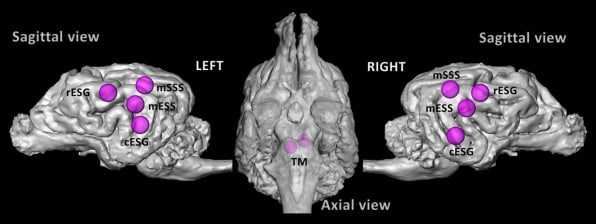Talk to your dogs: Their brains process speech the same way yours does
There’s a reason that you talk to dogs like they understand: They kinda do. Dogs’ brains process speech just like human brains do.
Researchers in Hungary put a dozen very cooperative golden retrievers, border collies, and a German shepherd in an fMRI machine, and murmured praise and unknown words (“such,” “as if,” “yet”) in varying intonations. They found that the dogs’ brains responded to speech just like a human brain would, processing emotional meaning separately from word meaning.

In both dogs and humans, ancient, subcortical parts of the brain process intonations, while higher, cortical parts of the brain process word meanings. The researchers note that this is telling about the evolution of speech, which likely developed from emotionally loaded intonations.
Notably, the researchers found that older dogs in the study distinguish words less well than younger dogs. This is why you sometimes get the sense that your dog is responding solely to your tone. She is. Verbal commands, in fact, are a terrible way to train your dog.
Previous research has indicated that verbal commands alone are the least efficient way to teach a dog: Visual cues are much faster, forming reward patterns in the brain in as few as 22 repetitions. Olfactory cues also work well, if you don’t mind perennially carrying pepperoni in your pocket.
(30)



